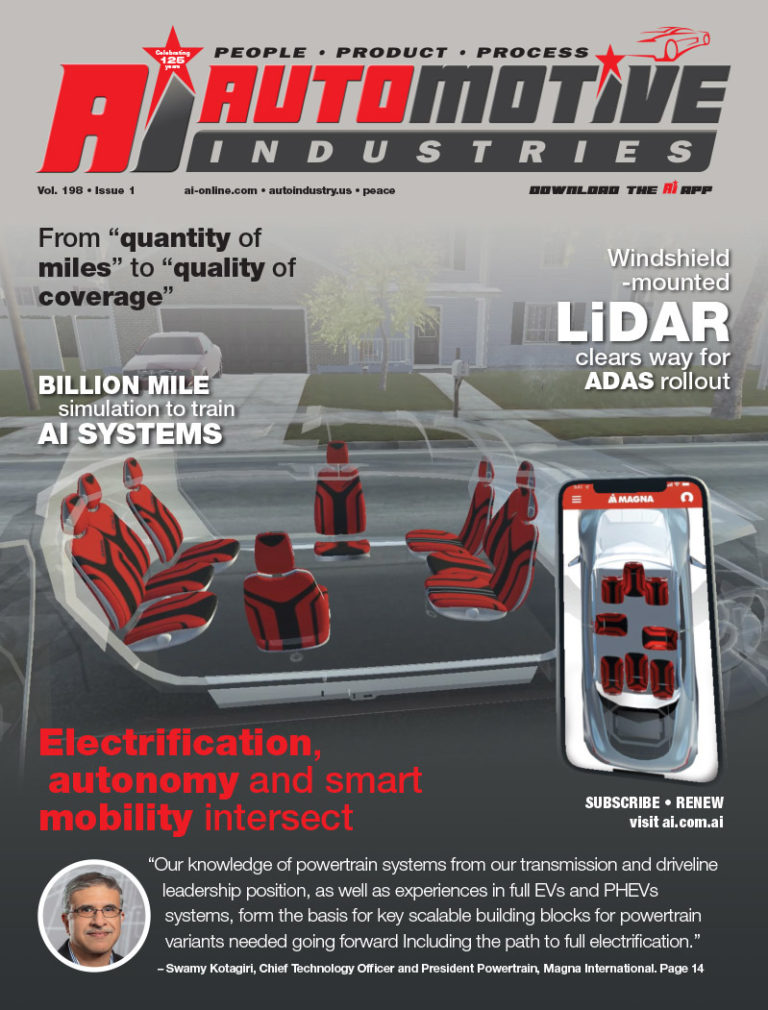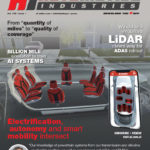 Mercedes-Benz has unveiled a new diesel-powered car for the U.S. Beginning this spring, the company will market an E320 CDI, a highly fuel-efficient diesel version of its successful E-Class sedan. The new E-Class diesel was displayed during the 2004 North American International Auto Show in Detroit.
Mercedes-Benz has unveiled a new diesel-powered car for the U.S. Beginning this spring, the company will market an E320 CDI, a highly fuel-efficient diesel version of its successful E-Class sedan. The new E-Class diesel was displayed during the 2004 North American International Auto Show in Detroit.
The new high-torque diesel engine is quiet and gets impressive fuel mileage, also achieving lower exhaust emissions than previous diesels. The turbocharged 6-cylinder powerplant will feature full electronic fuel injection, considered technically impossible on a diesel until only a few years ago. CDI stands for common rail diesel injection — a term denoting the fuel line loop supplying constant, very high fuel pressure (up to 23,000 psi) to each of the six solenoid injector valves. Relying purely on the heat of highly compressed intake air to ignite the fuel, diesel engines operate without spark plugs or other ignition parts.
The leap to electronic fuel injection means that the E320 CDI engine can be cleaner, quieter and more powerful than conventional mechanically injected diesel engines, Mercedes-Benz says. Diesel powerplants inherently produce 30 percent lower carbon dioxide emissions and significantly lower carbon monoxide than gasoline engines, but historically, diesels have produced more oxides of nitrogen and soot or particulates. However, with precise electronic control of fuel delivery, hand in hand with an oxidation catalyst, the E320 CDI can pass current 45-state emissions standards. When low-sulfur diesel fuel becomes available in the U.S. late 2006, Mercedes-Benz engineers are optimistic that the CDI diesel can meet emissions standards in all 50 states.
Mercedes-Benz debuted the world’s first diesel passenger car — the 260D — in 1936, and on a global basis, diesel engines power about 40 percent of Mercedes cars around the world. In the 1980s, more than 75 percent of the Mercedes-Benz cars sold in the U.S. market were diesel powered, but in the 1990s, diesel cars became a smaller and smaller part of the company’s product mix. Mercedes-Benz last offered a diesel car — the E300 Turbodiesel — in 1999.
The latest generation of electronically-injected CDI engines is likely to change consumers’ dated perceptions about diesel engines. With surprisingly good performance, low exhaust emissions and great fuel economy, electronic control of diesel fuel injection even makes it possible to soften the power pulses and help make the diesel nearly as quiet as a gasoline engine, even during idle conditions.
- Apr 2004
- AI Staff














































 Cars Worth Noting: 2004 Chevrolet Malibu
Cars Worth Noting: 2004 Chevrolet Malibu Cars Worth Noting: 2004 Chevy Colorado
Cars Worth Noting: 2004 Chevy Colorado


